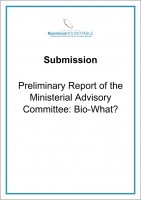
Submission: Preliminary Report of the Ministerial Advisory Committee: Bio-What?
Bio-What? is an offshoot of the New Zealand Biodiversity Strategy. Read more


Bio-What? is an offshoot of the New Zealand Biodiversity Strategy. Read more
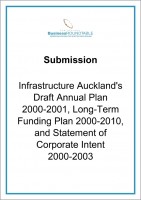
The Plan does not focus on funding public good activities. All passenger transport projects for which grant applications have been received since 1998 and are reported to have passed "legislative filters" are unambiguously private good activities. Read more
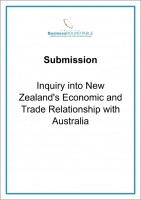
CER has, without doubt, been of significant benefit to New Zealand. There are, however, a number of outstanding areas for reform. Read more
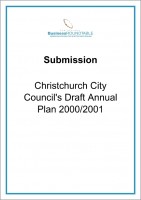
A prime concern of business organisations over the last few years has been the cumulative increases in the Council's expenditure, rates and compulsory charges as a consequence of its failure to focus on core activities, exit from other activities and implement more efficient funding arrangements. Unless the Council reconsiders its approach and adopts business organisations' suggestions, ratepayers will be confronted by continuing and unsustainable rate increases. Read more

The Employment Relations Bill raises two major concerns about government policy, one substantive and the other procedural. The substantive concern is the impact that the Bill will have on other areas of government policy including on price stability, unemployment, investment, the balance of payments, economic growth and the government's accounts. Read more
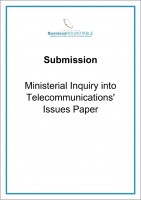
In section 2 of this submission we argue strongly against the Inquiry's interpretation of the government's objective for the telecommunications industry. In our view it is not consistent with the objective of achieving a dynamic, competitive and efficient industry. Read more

The abolition of the bulk funding of teacher salaries is by far the most important change and one for which no rational explanation is provided. We consider it to be a seriously retrograde step. Read more
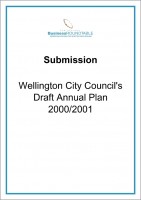
In submissions over the past few years business organisations have called on the Wellington City Council (the Council) to focus on its core business, exit from other activities and implement more efficient funding arrangements. Unless such policies are adopted, ratepayers will be confronted by continuing rate increases and Wellington City will be a less attractive city than otherwise to locate businesses. Read more
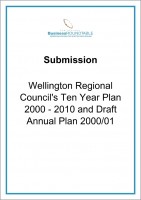
We are strongly of the view that the major contribution that the WRC can make to regional growth and employment prospects is to reduce the rates and regulatory burden it imposes on the private sector. Read more
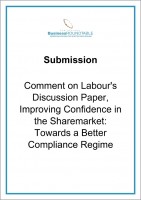
The Paper favours greater regulation of takeovers and insider trading and greater coordination, if not amalgamations, of regulatory institutions and regimes. It asks for comments on these proposals and provides 11 specific questions to guide respondents. Read more
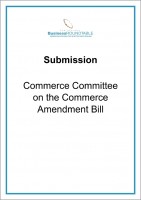
The NZBR has taken a close interest in Commerce Act issues because of the pervasive influence of the Act on commercial decision making in New Zealand. Read more
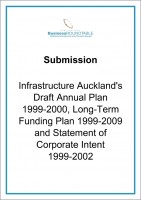
It is vital that Infrastructure Auckland establishes a valid and consistent view of its role and function that conforms fully with its governing legislation. We consider that in the Plan Infrastructure Auckland has not adequately distinguished its responsibilities and activities from those of other agencies and it has given insufficient attention to its statutory obligation to fund public (not private) good activities. Read more
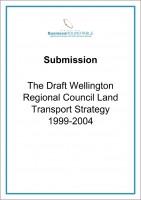
The Regional Land Transport Committee (the Committee) is responsible for preparing the Strategy. The Committee is chaired by a Wellington Regional Council (WRC) councillor and includes the representatives of 17 organisations. Read more
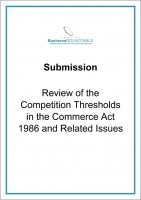
We have supported moving to a single competition threshold test that would apply to trade practices and business acquisitions. Business acquisitions and trade practices are part of a continuum of possible contractual arrangements rather than distinctly different forms. They should therefore be subject to the same regulatory rules. Read more

The NZBR has taken a close interest in electricity sector reform issues over the past 15 years. We have strongly supported moves to put the industry on a more conventional commercial footing, subject to only light-handed regulation. Read more